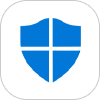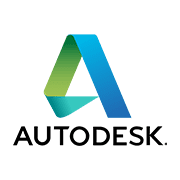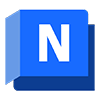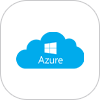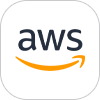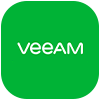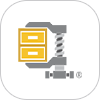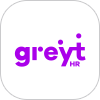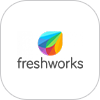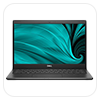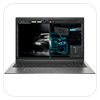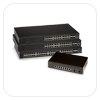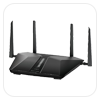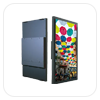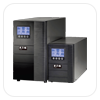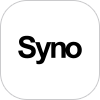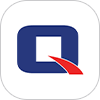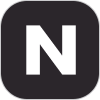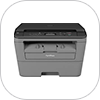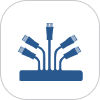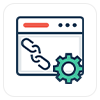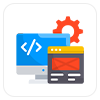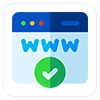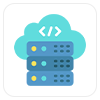
Your external circumstances often decide whether a NAS is more suitable or an external drive for one’s job. In the same situation, each one of them has its good and bad sides:
| Feature | NAS (Network Attached Storage) | External Hard Drives |
| Cost | Higher Initial Investment | Lower Initial Investment |
| Capacity | Scalable with multiple drive bays. | Limited to single drive capacity. |
| Performance | Network-dependent speeds | Direct connection speeds. |
| Accessibility | Multiple users and devices can access simultaneously over the network. | Primarily single-user access, it needs physical transfer for sharing. |
| Data Redundancy | Often supports RAID for data protection. | Typically, no built-in redundancy. |
| Backup | Supports automated, centralized backups | Usually requires manual backups. |
| Remote Access | Often offers secure remote access over the internet. | Not typically made for remote access. |
| Security | Advanced user management, encryption, and access control. | Basic password protection in some cases. |
| Ease of Use | More complex setup and management. | Just plug and play. |
| Portability | Less portable, designed for a stationary network. | Highly portable. |
| Scalability | Easily scalable by adding or replacing drives. | Scaling needs buying and managing multiple drives. |
| Additional Features | Can host other applications and services | Primarily for storage and transfer. |
| Power Consumption | Generally higher due to always being on. | Only consumes power when connected and in use. |
Why Should You Consider a NAS?
Simply put, a NAS is the similar to a mini-computer that hooks up to a network and serves the purpose of storing and sharing files. It is primarily comprised of one or more hard drives in a box, a network connection, and its own operating system to determine who may access the data. Most NAS devices also offer many handy features.
Benefits of NAS for Business:
Centralized Storage: Provides you with one storage for all your business data, hence making it easier to manage, access, back up, etc.
Multiple User Access: Multiple users and devices can open files stored on NAS devices at the same time.
Scalability: Most NAS devices are provided with multiple drive bays where you can add additional or larger hard drives to support your increasing storage capacity requirements.
Data Redundancy (RAID): Numerous NAS devices will include support for RAID (Redundant Array of Independent Disks) schemes to ensure that your information is safeguarded in case of a hard disk failure, as the information gets duplicated and copied across numerous drives.
Automatic Backups: The majority of NAS devices possess incorporated software for automating the backups of computers and other attached machines on the given network.
Remote Access: Most solutions deliver secure access to your files over the Internet so that you can work from anywhere.
Stronger Security Features: NAS storage devices typically have more robust security features than an external hard disk drive, including user accounts, access controls, and encryption.
Flexibility: Some NAS devices are also capable of running other applications and services such as media servers, print servers, and even private cloud solutions.
Why Choose External Hard Drives?
External hard drives are portable storage units that are attached to a computer through USB and other interfaces. It is mainly designed for a single user to backup and transfer data.
Advantages of Using External Hard Disks for Business:
Price: External drives tend to be less expensive than NAS, making them an affordable option for basic storage.
Simplicity and Ease of Use: Since they are plug-and-play, they need no complex setups or any networking.
Handy: Easy to carry around for file transfers between different computers or making backups in other locations.
Offline Access: Data can be accessed from an external HDD without an internet connection.
Physical Security: An external HDD can be physically secured when not in use to prevent unauthorized access or theft.
Which one is suitable for your business?
Choose a NAS when:
- There are multiple users who need to access and share files.
- A centralized backup solution is required for several devices.
- Data redundancy and protection against drive errors are very important.
- You need secure remote access to your files.
- You expect growth in storage capacity in the future.
- You want to run other networked applications.
- You have the budget and expertise (or are willing to invest in it).
Choose External Hard Drives when:
- The business is very small, or the sole proprietor has little need for file sharing.
- The main consideration is workstation backup or portable storage.
- The budget for the project is very tight.
- There is no need for remote access or advanced security features.
- Data storage needs will likely not increase much.
Hybrid Considerations:
Sometimes, a hybrid model could be useful. The company might rely on a NAS for centralized storage and collaboration on files, usually accessing and deploying external hard disk drives for workstation backup or for securing the off-site backup of NAS data against physical disasters.
Making a smart decision depends on carefully thinking about what you need for data storage, sharing, security, and how much you’re willing to spend.





